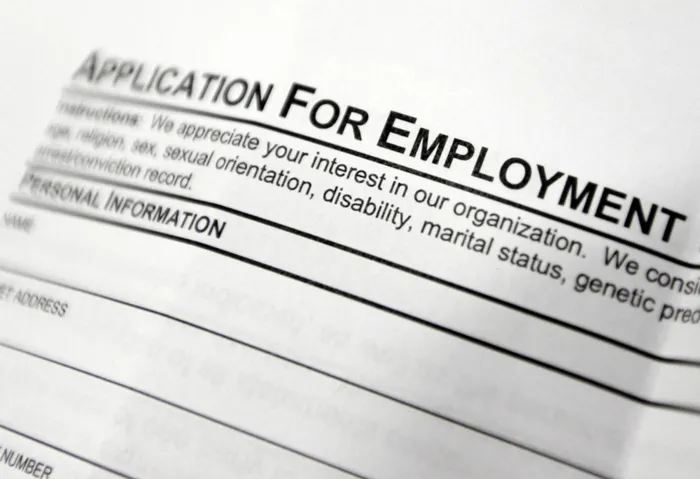
FILE - This April 22, 2014, file photo shows an employment application form on a table during a job fair at Columbia-Greene Community College in Hudson, N.Y. The Labor Department reports the number of people who applied for unemployment benefits last week on Thursday, July 10, 2014. (AP Photo/Mike Groll, File) FILE - This April 22, 2014, file photo shows an employment application form on a table during a job fair at Columbia-Greene Community College in Hudson, N.Y. The Labor Department reports the number of people who applied for unemployment benefits last week on Thursday, July 10, 2014. (AP Photo/Mike Groll, File)
Cape Town - Low wage job creation will do more for the poor than a high national minimum wage, a new Institute for Justice and Reconciliation (IJR) report released yesterday said.
A national minimum wage that is out of sync with domestic realities will lead to job losses among the most vulnerable workers, whom such a wage seeks to protect, said the 2015 Transformation Audit report, titled “Radical Reconciliation: Critical choices for economic justice”.
Setting a national minimum level at R5 000 a month would in real terms double the lowest sectoral minimal in low-wage sectors, like clothing manufacturing, the IJR says.
Report author and UCT political studies and sociology Professor Jeremy Seekings said the minimum wage is not a tool for raising wages massively, because employers will retrench their employees, perhaps replacing them with machinery.
Read also: Farm workers in line for wage boost
“The evidence from studies in South Africa and abroad suggests that modest increases in minimum wages result in little or no job destruction, but large, rash increases can lead to massive job destruction, especially among the lowest-paid workers,” he said.
Seekings said to remedy this issue, the minimum wage can be set at a level to raise wages for the lowest paid 25 percent of workers.
Other key findings of the report included that compared to other similar countries, South Africa’s existing sectoral minimums are either higher than or in line with cost of living, average wages of GDP per capita.
CAPE TIMES